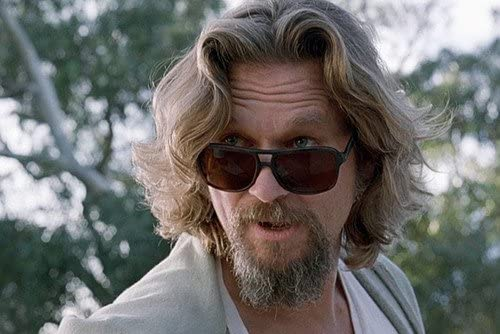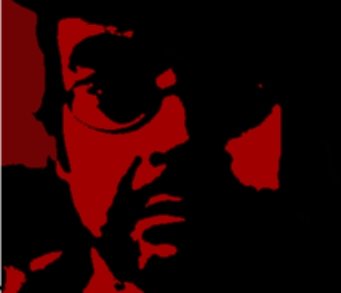We believe in nothing, Mr. Lebowski.
Nothing.
And tomorrow we come back and we cut off your chonson.
Removed by mod
I agree, and well put.
I believe in social democracy, I believe that it is the best political ideology.
It combines a free society with a government provided safety net.
I see communism as being too restrictive, and unregulated capitalism as being way too out of control.
A progressive social democratic country with a strong government seems to me as combining new ideas with a stable foundation.
What Economic structure would you use in your ideal society?
I am not well versed in the theory if economics.
In general terms and speaking purely in an ideal world, I would expect that a regulated market economy would allow the society to exploit the free market and the greed of humans, while providing a solid foundation of government services for it’s citizens to rely on.
The power of friendship (I have no friends)
What is stopping you from having friends?
Myself I guess.
The world is made of magic, it just differentiated into so many forms, that one of them is science and that’s what many people believe is all there is.
I feel in the mood to explain more about this:
Similar to european school’s history classes tend to be focused on european history (we call that “eurocentrism”), our worldview is focused on humans, i think that’s called “anthropocentrism”. While humans are important, it’s not everything there is. There’s also plants and other living beings, and in fact there’s many more of them than of us. I try to consider that.
I’m calling the unity of all life “magic”, i came up with that and it’s supposed to be a play-on-words on the german word “Magen” (stomach) (representing that plants and animals are connected through an important relationship that is food). Also the stomach is the organ most physiologically/spatially central in the human body, in my opinion. So i imagine that everything’s in the human is built around that “central” organ that is the stomach. That makes sense as the intake of food is the root of all animal existence, that enables animal’s existence in the first place. Thus “everything is created from the stomach outwards”, as supportive organs to help the stomach collect and digest food.
This is an interesting take.
I like to think of Science as magic, because it really is.
Ancient peoples played with “Alchemy,” and modern chemistry is simply that. They would lose it if they knew we could “grow” diamonds, or that we have created an entirely new element.
Or that we’ve turned lead into gold, though not very cost-effectively to say the least.
Only that which has evidence to support it.
How much n is enough n?
Depends on what n is.
God doesn’t exist (though there is a tiny, tiny chance there’s some higher power that doesn’t intervene, because the human intelligence gap is unreasonably huge, making humans undeniably special)
Every organized religion is a cult
Free will is an illusion
Aliens most likely exist, given the insane size of the universe and we know life can exist here
Humans will still always give in to their brutal tribal instincts and that’s why the world is how it is
I believe I’d like another drink.
Believing in something seems to imply thinking something to be true without having evidence for it - otherwise it would be knowledge, a justified true belief. So I know a couple things, like that I exist as a conscious being, and have practical empirical knowledge of the rest of the sensory world too.
Believe means to accept as true or real, and does not define the precondition to the belief.
How can you prove that you exist as a conscious being?
How can you prove that your senses can be trusted?
-
I am thinking about whether I exist as a conscious being. Therefore there must be an ‘I’ to be thinking that.
-
I can’t prove that my senses can be trusted with 100% certainty to tell me truth - in fact I can prove the opposite with things like optical illusions. However, when interacting with the world that I only know is real through my senses, basing my behaviour on those same senses that let me know the world exists seems reasonable to me. That’s what I call practical knowledge, rather than true knowledge.
How do you define “I”?
In other words you believe what your senses tell you to be real even though you cannot objectively prove your senses to be trustworthy?
-
‘I’ is the thing that is thinking it
-
I don’t ‘believe’ that my senses are real, but that it’s good enough to act as though they are real, regarding the sensory world.
-
-
have practical empirical knowledge of the rest of the sensory world too.
Oho, that’s a pretty bold statement of belief for someone who can’t prove they’re not a brain in a vat!
More seriously though, there are tons of things that have conflicting evidence or are simply too big or complex to have enough evidence to have definitive proof for, yet we still have to make decisions about them. Like believing that X vs Y is a better governing system (eg democracy vs republic). Or what about questions that aren’t related to proof, like defining and living by ethical standards? Yet most people still find value in “moral” things, and believe that people should do “good” instead of “bad”.
What you just uttered is a totally valid belief in my eyes :)
Beliefs don’t always have to be based on mere intuition alone. It’s totally fine to be able to back up what one believes with arguments.
A theory I’ve been working on lately is that our worldview rests on certain foundational beliefs - beliefs that can’t be objectively proven or disproven. We don’t arrive at them through reason alone but end up adopting the one that feels intuitively true to us, almost as if it chooses us rather than the other way around. One example is the belief in whether or not a god exists. That question sits at the root of a person’s worldview, and everything else tends to flow logically from it. You can’t meaningfully claim to believe in God and then live as if He doesn’t exist - the structure has to be internally consistent.
That’s why I find it mostly futile to argue about downstream issues like abortion with someone whose core belief system is fundamentally different. It’s like chipping away at the chimney when the foundation is what really holds everything up. If the foundation shifts, the rest tends to collapse on its own.
So in other words: even if we agree on the facts, we may still arrive at different conclusions because of our beliefs. When it comes to knowledge, there’s only one thing I see as undeniably true - and you probably agree with me on this: my consciousness, the fact of subjective experience. Everything else is up for debate - and I truly mean everything.
Maybe a god’s existence is a core belief for some people, but it shouldn’t be. There shouldn’t be anything you believe without a logical reason to.
“Why is there something rather than nothing?” is a valid question - and the idea that something created it isn’t entirely unthinkable. The point is that you can’t prove or disprove it. Not believing in God is just as much a foundational belief as believing in one. Much of what you think about the world is built on these core beliefs - the kind that, if proven wrong, would effectively collapse your entire worldview.
What i don’t get here is what the existence of a “creator” would have to do with abortion. Just as an example, what if there is a god. What does that tell us about everyday life, or about abortion?
It would be very well conceivable to me that there is a god, but they have no opinion about whether we do abortions or not. How are these things connected?
In the case of being anti-abortion, we’re talking about people who believe in the biblical God - and they often point to chapters in the Bible to justify their stance. In most cases, it boils down to the belief that life begins at the moment of conception and that all life is sacred. There are also passages in the Bible that speak about God having plans for unborn children.
Ok, let’s take a step backwards. How are you defining ‘god’?
Personally, I consider it synonymous with “creator,” but even if someone believes in a biblical God, that’s beside the point. While the idea of a biblical God is an entirely unconvincing concept to me, I still give it - or something like it - a greater-than-zero chance of actually existing. I can’t prove otherwise.
Another example of a belief like that would be belief in the physical world around you. You could be dreaming - or in a simulation.
So can I clarify that when you’re saying
Some people take the existence of god as a brute fact
That you mean
Some people assume that universe was created by something
?
Well, that’s not a direct quote from me, but yes - some people assume the universe was created by something. For some, that’s the person running the simulation; for others, it’s the biblical God as described in the Bible, or atleast their interpretation of it.
I believe the pen in front of me exists.
That coffee cup is suspicious though.
I Believe in the Power of American Native
That my dogs will aways be happy to see me
This is adorable.
It took me longer than I’d like to think of an answer.
Maths.
Maths is good.
- Water is wet
- The sky is blue
- Women have secrets
The sky isn’t blue.
- The universe and everything in it was made for a reason.
- The message of Jesus, while deformed and deeply mixed with Western nonsense by Rome (polytheism, pagan rites and an immature disregard for self restraint, to name a few), will serve as a basis to unite the West to the rest of the world (up until now it’s behaved either as an armed landlord, a mob boss or a deranged killer, and that includes the European colonial project called Israel).
- People are fundamentally kind hearted and prosocial, but unexamined trauma, pettiness and immaturity, and an overall disregard for thought before action (a moral obligation, btw), keeps them from being who they were always supposed to be.
- Hard labels don’t/rarely belong in this world, and never apply to people. If you wanna understand the universe and the people in it you’re gonna have to understand them as a collection of spectrums/ranges, not as singular adjectives and nouns that are either meaningless or overly exaggerated.
do you believe that randomness exists?
The universe and everything in it was made for a reason.
I wonder how randomness would fit into this. I believe that randomness does exist and that order/causality has its limits.
Randomness? Or uncertainty? Cause I understand uncertainty (both epistemologically and physically, and more so the former than the latter), but it’s hard for me to understand randomness when everything comes from something that came before, forming a line of causes and effects (knowable and unknowable) from the beginning of the universe until today. Perhaps through quantum physics, idk, but I don’t think I need to understand it as long as I only take into consideration what happens after the collapse of the wave function, lol. I also understand that consciousness is a black box, and free will is evidently real (go diet or be faithful in your teenage yours, you’ll quickly discover your freedom as you’re fighting yourself) but is axiomatic and cannot be properly explained in words (it’s part of the terrain that cannot be represented in the map).
I have read the following very beautiful explanation of randomness:
You may very well assume that the universe is deterministic, i.e. one thing follows after another, but even if that is so, you still end up with infinitely many stars in the night sky, and you cannot predict their patterns and shapes from mere computational-prediction alone. You need to venture out into the night and see the stars for yourself in order to find their arrangement and yourself in the middle of it. That is what randomness is all about: The stars could have any pattern, but they have exactly one. The same applies for humans: Humans could have any character, but they have exactly one. The true human character causes free-will, and that is what you and me experience as the wonder of life.
That is beautiful indeed. 😊❤️









